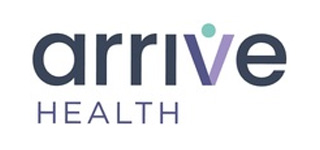AutoGenomics, Inc., based in Carlsbad, CA, announced that its INFINITI® Neural Response Panel has been granted designation as a Breakthrough Device by the US Food and Drug Administration (FDA).
The INFINITI® Neural Response Panel is a qualitative in vitro diagnostic test for the identification of patients who may be at risk for opioid dependency. The Panel is designed to identify 16 genetic mutations involved in the brain reward pathways that are associated with increased risk of opioid use disorder, and is intended for use by physicians as an aid for safe and effective pain management.
The Breakthrough Device Program is reserved for certain medical devices that demonstrate the potential to address unmet medical needs. The program is intended to help patients have more timely access to devices and breakthrough technologies that more effectively diagnose or treat life-threatening or irreversibly debilitating diseases or conditions. Under the Breakthrough Device Program, the FDA will provide its support to advance the INFINITI® Neural Response Panel. The commitment from the FDA for priority and expedited review (link is external) and senior management involvement will enable a reduced regulatory timeline.
Addiction is a chronic, relapsing brain disease that is characterized by compulsive drug use despite harmful consequences. According to a Columbia University study, 40 million Americans age 12 and over meet the clinical criteria for addiction involving nicotine, alcohol or other drugs. Opioid drugs play an important role in the clinical management of pain despite a broad spectrum of side-effects that induce a sense of euphoria often leading to addiction. According to the Center for Disease Control and Prevention (CDC), more than 64,000 deaths were the result of drug overdose in the US in 2016. The surge in prescription and illicit opioid abuse is likely the main driver of this trend.
According to the American Society of Addictive Medicine (ASAM) and NIDA, up to 60% of substance abuse is due to genetic factors that is not routinely tested since there is no commercially available diagnostic test that would identify a patient’s genetic risk of opioid dependency. AutoGenomics conducted extensive research in the scientific literature of addiction studies that led to the development of the INFINITI® Neural Response Panel. These findings were first presented at the 69th AACC Annual Scientific Meeting & Clinical Lab Expo in San Diego in July 2017. AutoGenomics received the 2017 Industry Division Poster Award for its research entitled “Risk assessment of opioid addiction with a multi-variant genetic panel involved in the brain reward pathway”, which describes the predictive algorithm of the Panel.
“We believe that this multi-variant addiction panel with its predictive algorithm represents a significant tool for the healthcare practitioners to identify and better manage patients at risk of opioid dependency,” said Fareed Kureshy, President and Chief Executive Officer of AutoGenomics.
AutoGenomics has notified the FDA of its intent to pursue premarket clearance through the FDA De Novo process.



